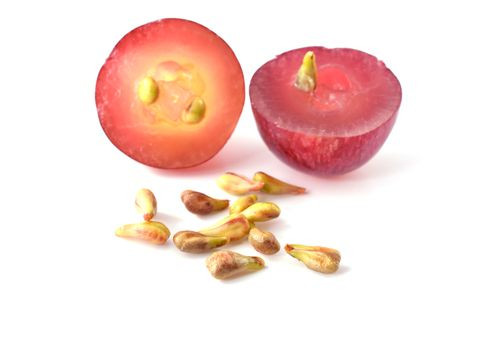Compound In Grape Seed Extract Causes Prostate Cancer Cell Death

Grape seed extract’s abundance in bioflavonoid compounds known as procyanidins, which are also found in apples and chocolate, has led many to use it as a supplement for its many health benefits. One of the most promising pieces of research into the bioflavonoids is that they were able to kill prostate cancer cells. Until now, however, researchers didn’t know which specific compound was mostly responsible for this process. In a new study, researchers detail how they were able to synthesize the responsible compound, and showed how it killed the cancer cells.
Researchers from the University of Colorado Cancer Center had previously looked into procyanidins’ potential to kill cancer cells. “This naturally occurring compound, grape seed extract, is a complex mixture of polyphenols and, so far, it has been unclear about the biologically active constituents of grape seed extract against cancer cells,” Alpna Tyagi, of the University of Colorado Skaggs School of Pharmacy and Phamaceutical Sciences, said in a press release.
The team of researchers found that the procyanidin B2G2 was the most active compound against prostate cancer cells, however, isolating large enough quantities from the grape seed extract was time consuming and expensive. Isolating larger quantities would have been even more difficult. So instead, they decided that synthesizing the compound would be the best route, and they were right — they were left with a completely pure form of the compound at a fraction of the cost and time. Upon testing the compound on prostate cells, they found that both the isolated compound and the synthesized compound inhibited cell growth and caused cell death, which is known as apoptosis.
“Our goal all along has been a clinical trial of the biologically active compounds from grape seed extract against human cancer,” Tyagi said in the statement. “But it’s difficult to earn FDA approval for a trial in which we don’t know the mechanisms and possible effects of all active components.” By overcoming this challenge, Tyagi’s team has moved that much closer to conducting studies on the compound’s effect on prostate cancer outside of a petri dish.
Aside from prostate cancer, the procyanidins in grape seed extract have also been found to have other health benefits. According to the National Institutes of Health, grape seed extract can alleviate chronic venous insufficiency, allowing blood to flow more freely from the legs to the heart, and it can reduce eye and blood vessel problems associated with diabetes.
Source: Tyagi A, Raina K, Shrestha S, et al. Procyanidin B2 3,3″-di-O-gallate, a Biologically Active Constituent of Grape Seed Extract, Induces Apoptosis in Human Prostate Cancer Cells Via Targeting NF-κB, Stat3, and AP1 Transcription Factors. Nutrition and Cancer. 2013.



























